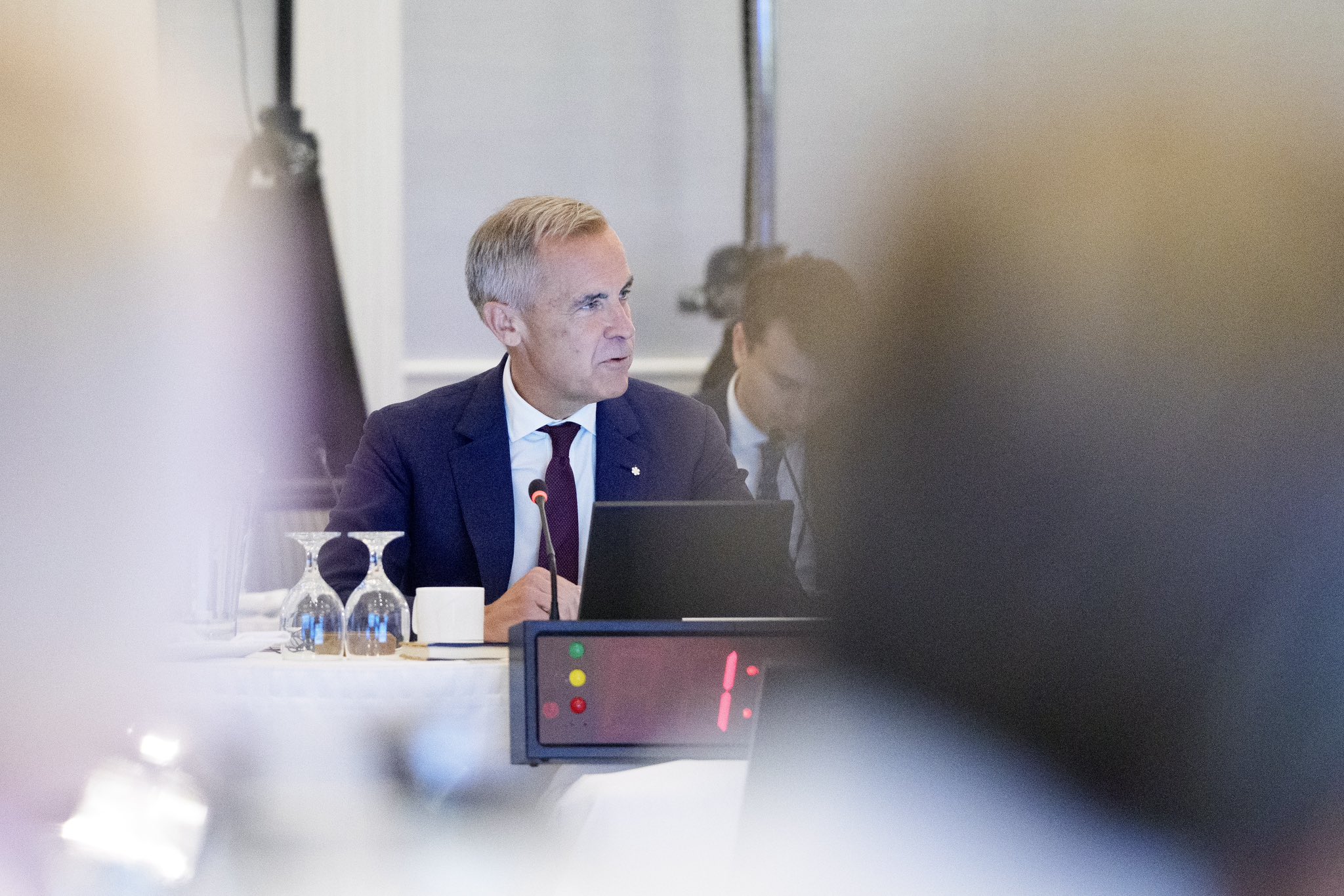Canada announces historic trade resilience measures
The centrepiece of the announcement is a new $5-billion Strategic Response Fund.

Key Takeaways:
- Ottawa is creating a new Major Projects Office to accelerate approvals for housing, energy and industrial developments, while Build Canada Homes will aim to double the pace of residential construction over the next decade.
- A new Buy Canadian policy will require federal projects and Crown corporations to prioritize local suppliers, creating stronger demand for Canadian-made materials and services.
- Expanded loans for small and medium-sized firms, a $5-billion Strategic Response Fund, and reskilling programs for 50,000 workers are designed to give the construction and development sector more capital and skilled labour to deliver projects.
The Whole Story:
Prime Minister Mark Carney has announced a sweeping package of measures designed to insulate Canadian workers and industries from mounting U.S. tariffs and a rapidly shifting global trade order.
The plan, billed as the most comprehensive suite of trade resilience measures in Canadian history, aims to reduce Canada’s reliance on the United States by strengthening domestic industries, boosting consumer demand at home and broadening international partnerships.
Speaking Thursday in Ottawa, Carney said the world economy has entered a period of profound disruption, with the United States retooling its trade relationships in ways that have shaken global supply chains and injected uncertainty into investment decisions.
“We cannot control what other nations do. We can control what we give ourselves – what we build for ourselves,” Carney said. “Canada is building the strongest economy in the G7, one that is less reliant on foreign powers and more resilient in the face of global shocks.”
$5B response fund and new reskilling package
The centrepiece of the announcement is a new $5-billion Strategic Response Fund that will provide flexible financing to firms in industries hit hardest by tariffs. The government says the money will help companies retool their production lines, diversify their products and expand into new markets.
Workers are also a key focus of the package. Ottawa will launch a reskilling program for up to 50,000 Canadians, extend Employment Insurance benefits for those facing layoffs, and create a digital jobs and training platform with private-sector partners to connect people with new career opportunities.
Jobs Minister Patty Hajdu said the initiatives are aimed at ensuring Canadians can adapt to a rapidly evolving economy. “Canadian workers are the foundation of our economic strength,” she said. “By investing in skills, training, and resources, workers will be ready to adapt to today’s challenges and lead in tomorrow’s economy.”
Buy Canadian policy and business support
The government is also introducing a new Buy Canadian Policy that will require federal departments and Crown corporations to prioritize domestic suppliers. Where Canadian suppliers are unavailable, the policy will mandate local content requirements and extend similar standards to federal funding streams.
Procurement Minister Joël Lightbound said the approach will help secure Canadian supply chains and spur growth. “Through the new Buy Canadian Policy, we are leveraging our purchasing power to strengthen domestic supply chains and drive prosperity,” he said.
Small and medium-sized businesses will see the maximum loan size through the Business Development Bank of Canada rise to $5 million. Larger firms will gain access to more flexible financing through a revamped Large Enterprise Tariff Loan Facility.
For the auto industry, Ottawa is offering temporary relief by waiving Electric Vehicle Availability Standard requirements for 2026 model-year vehicles and launching a 60-day review aimed at cutting costs.
Fast-tracking major projects
In addition to immediate support, the government announced the creation of a Major Projects Office intended to fast-track “nation-building” infrastructure projects. Officials said the office will be central to speeding up approvals for housing, energy and industrial developments that are key to Canada’s long-term resilience.
Future initiatives will include a Defence Industrial Strategy, a new Trade Diversification Strategy and the launch of Build Canada Homes, a government entity tasked with doubling the pace of residential construction over the next decade.
Industry Minister Mélanie Joly described the moves as a turning point. “Canadian industry is the backbone of our country’s economy,” she said. “Our government is investing strategically in our workers and our industries to build the most resilient economy in the G7.”
Responding to U.S. tariffs
The measures come as Canada faces mounting pressure from a wave of U.S. tariffs and trade disputes that have touched sectors ranging from steel and softwood lumber to agriculture and autos.
Dominic LeBlanc, minister responsible for Canada-U.S. trade, said the government will not hesitate to act when Canadian interests are threatened. “Our government understands the uncertainty and concerns many Canadians are feeling as a result of the tariffs imposed by the U.S.,” he said. “That is why we remain committed to continue using every tool at our disposal to support Canadians and Canadian businesses.”
Finance Minister François-Philippe Champagne echoed that message, saying the plan will give companies the resources to withstand global turbulence. “These measures will ensure businesses have the liquidity to adapt, workers have the skills to lead, and our economy is built to thrive in a more self-reliant, diversified future,” he said.
Building strength at home
Carney said the government’s goal is to ensure Canadian prosperity is not overly dependent on any one trading partner. “In the face of uncertainty around the world, we are ensuring that our workers and businesses will prosper by building Canada’s strength at home,” he said.
While Canada continues to maintain what officials describe as the “best deal” of any U.S. trading partner, Carney said the country cannot afford to assume that relationship will remain stable. Instead, he argued, the economy must be built on the “solid foundation of strong Canadian industries, robust domestic demand and diverse trade partnerships.”
With global uncertainty discouraging private-sector investment, Carney said Ottawa had no choice but to step in with major public support. “By supporting our workers and industries, we will build Canada strong,” he said.
